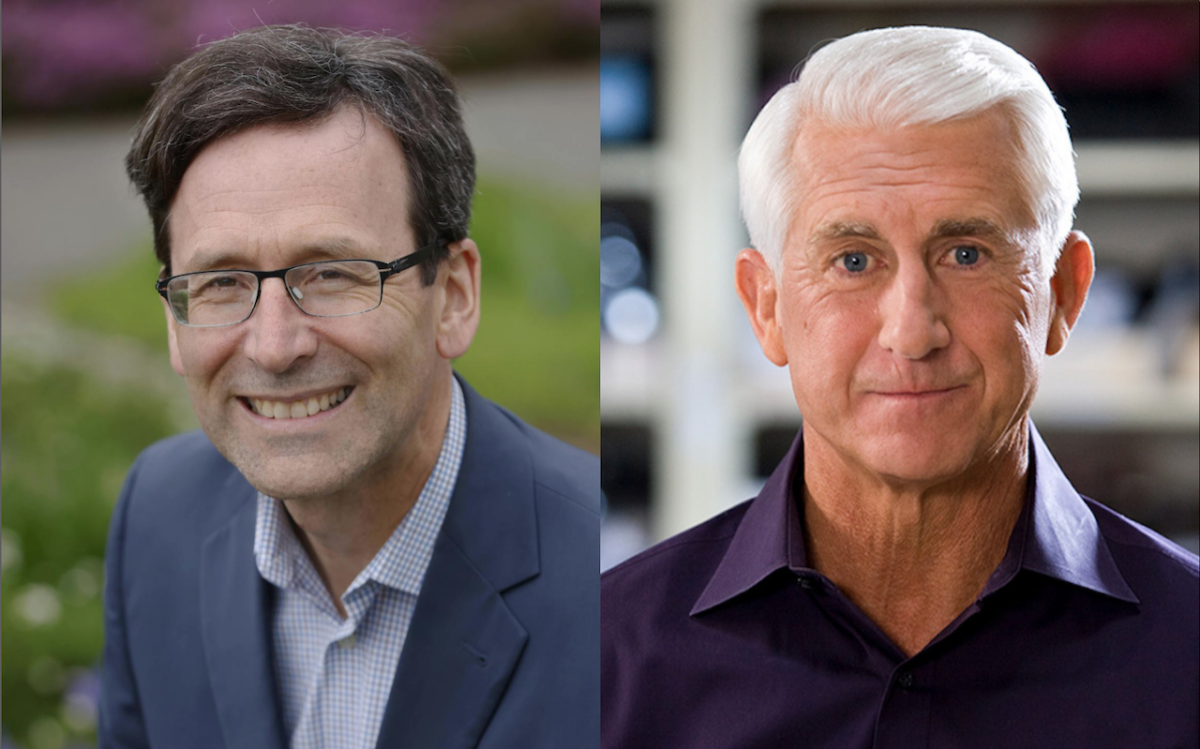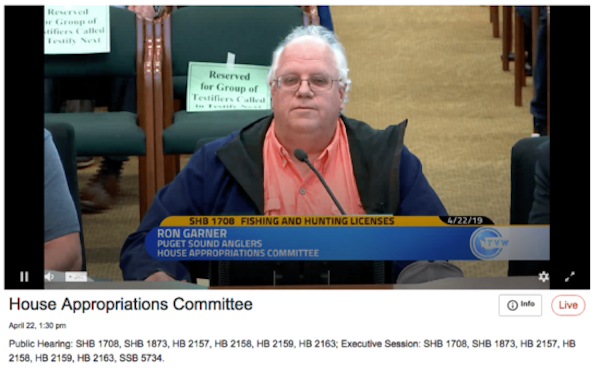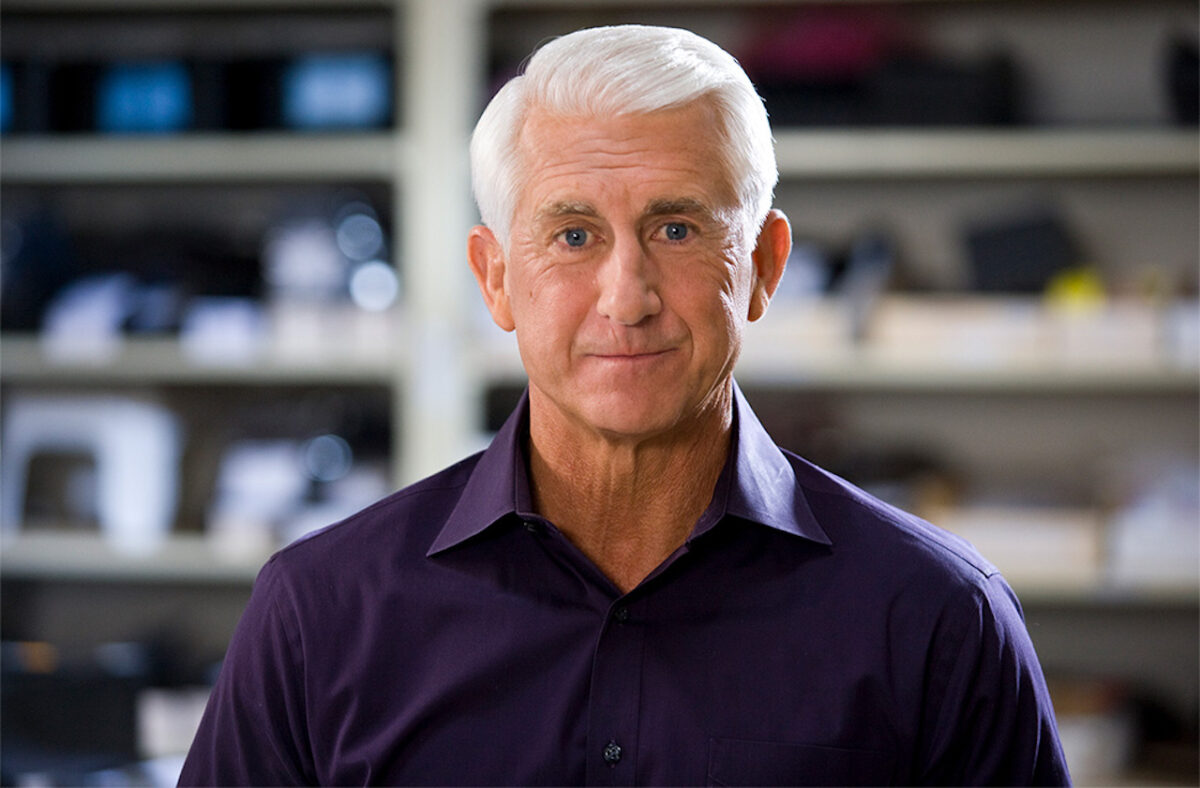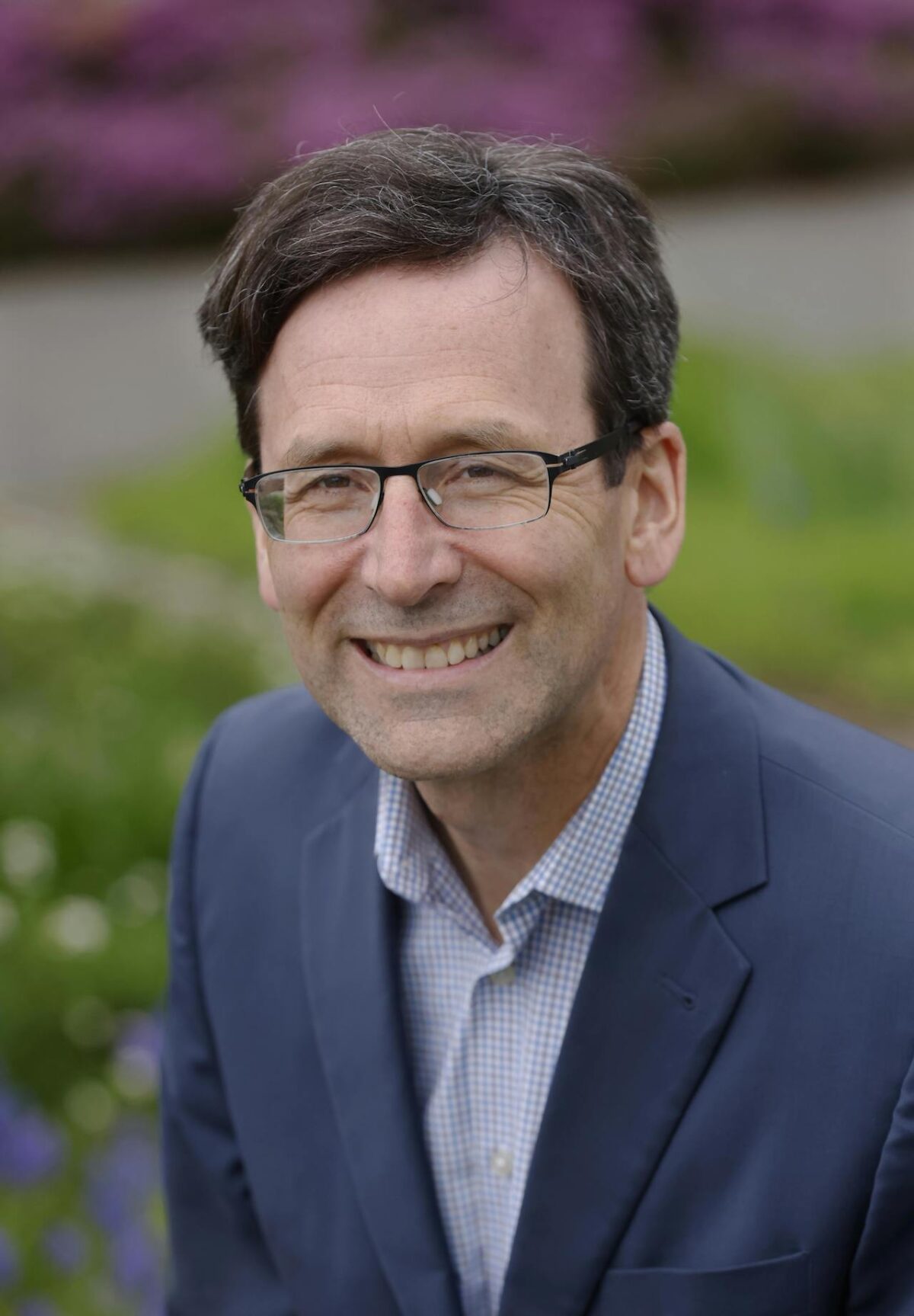
WA Governor Candidates Reichert And Ferguson Address Salmon, Fisheries In PSA Q&A
Washington’s two gubernatorial candidates have detailed their positions on salmon fisheries and recovering Chinook and other stocks, hatcheries and the Fish and Wildlife Commission in response to Q&As from Puget Sound Anglers.

Republican Dave Reichert and Democrat Bob Ferguson are vying to replace outgoing three-term Governor Jay Inslee this November, and they also addressed tribal comanagement, pinniped predation and restoring Lake Washington sockeye.
Indeed, both candidates have roots in King County – Reichert, 74, was its elected sheriff and represented the Eastside in Congress for seven terms; Ferguson, 59, served on the county council for much of the same period – and while Reichert recalled trolling the big metro lake for sockeye back in the day and says he fishes Lake Chelan, where he now lives, for landlocked Chinook and trout, Ferguson admitted to not having fished in at least the last half-decade.
“Life has been a little busy,” added the current state Attorney General, who outlined a number of “tools” he’s nonetheless used over the years to “fight for salmon recovery.”
The questions were drummed up by PSA President Ron Garner and longtime sportfishing advocate Frank Urabeck. In an email yesterday to chapter officials and select media representatives, Garner explained the duo wanted to give organization members “a chance to hear” what Ferguson and Reichert have to say about issues critical to PSA.
They were able to speak with Reichert for an hour in June via Zoom and found him to be “very easy to talk to and well educated on fisheries, at least on ideas on how to fix them,” according to Garner. While he said Ferguson didn’t have time to meet with them personally, the candidate still answered their seven questions.

Many PSA members will likely be locked into voting for one party or the other, but for Garner – a veteran of Inslee’s Southern Resident Killer Whale Task Force – it’s all about being able to be at the table when it comes time to hold conversations about salmon fisheries and hatchery production, a lesson he learned following a “fight” with one of Inslee’s policy leads several years back.
“Moving forward, we have to be involved in the Governor’s Office no matter who the governor is,” Garner stressed. “We did not make this about Democrat/Republican, but access to whoever is going to be elected and to work with us on fisheries.”
Garner encouraged those he emailed yesterday to forward the candidates’ responses on to PSA members. After we did our due diligence and double checked with both campaigns that the answers indeed represented their true statements, we are providing the same service for a wider audience.
Through a coin flip, Reichert’s answers will be followed by Ferguson’s. The questions and answers have been lightly edited for punctuation, grammar, etc.
DAVE REICHERT Q&A

Puget Sound Anglers Question #1: While not an issue, our members often ask public officials if they have fished, as it provides a more personal sense of interest and understanding of a resource pursued by a significant number of Washington residents. Have you fished for salmon, steelhead, trout or other fish within the last five years? If yes, which species and do you now have a current fishing license?
Dave Reichert: I fished a lot when I was King County sheriff, mostly for trout and Lake Washington sockeye. Continue to fish for trout and for Chinook salmon on Lake Chelan where I now live. Have played a very large sturgeon in the lower Columbia River. Yes, I have a current state of Washington fishing license.
Puget Sound Anglers Question #2: How important economically and socially do you believe fishing is to state residents? Would you as governor continue to take actions, including budgeting significant resources, to our salmon and steelhead runs and expand sportfishing opportunities? Restoration of the Lake Washington sockeye tribal and sport fisheries is an excellent example of a current fishery restoration project that the Cedar River Council, PSA and others have been pursuing with the City of Seattle, Governor’s Office, Department of Fish and Wildlife, Muckleshoot Indian Tribe, King County and others. The Cedar River sockeye run once produced tribal and sport fisheries in Lake Washington that rivaled the Columbia River sockeye before Lake Washington conditions caused the run to decline, with the last fisheries held in 2006. Would you support restoration of Lake Washington sockeye fisheries?
Dave Reichert: One of seven Washington residents is a sportfishing angler. Economies of small communities like Westport, Ilwaco, Forks, Sekiu and Neah Bay depend on sport and commercial fisheries. Salmon and salmon fishing have long been an important element of the quality of life of Washingtonians. We must continue to protect, restore and enhance the salmon resource and support the enjoyment of that resource with sport fisheries and other activities, like public viewing at the Ballard Locks fish ladder and of spawning salmon in the Cedar River and other rivers. As governor I intend to be part of this effort. Having fished for sockeye on Lake Washington, I am hopeful that we can restore sockeye fisheries there within a reasonable time frame and will promote that goal through encouraging a cooperative effort of the state, City of Seattle the Muckleshoot Indian Tribe and King County.
Puget Sound Anglers Question #3: Are you OK with the current governance arrangement for the Department of Fish and Wildlife, where the governor selects the members of the Fish and Wildlife Commission, subject to confirmation by the legislature, and the commission selects the director of the department?
Dave Reichert: Yes, but it is important that persons selected for the six-year terms of a commissioner clearly identify with expectations of that job and have some experience with actual fishing and hunting so they can identify with the public that engages in those sports. My intent would be to require that experience as a prerequisite to being considered for a commissioner position.
Puget Sound Anglers Question #4: Are you OK with the current working relationship of the Governor’s Office with Washington treaty fishing rights tribes and the Department of Fish and Wildlife? If not, what would you do to improve those relationships that are critical to meeting our conservation and ESA obligations, allowing tribal and sport fisheries and maintaining the quality of life that longterm residents of Washington have come to cherish?
Dave Reichert: Yes, although I believe we should strive to improve on those relationships in pursuit of mutual interest, as working together has been shown to be beneficial to the resource and sharing of harvestable salmon. An example is the work of the Orca Task Force, which promoted a significant increase in hatchery Chinook production that is helping the orca population to survive and also improve tribal and sportfishing opportunities.
Puget Sound Anglers Question #5: Where do you stand on the issue of using fish hatcheries to sustain salmon and steelhead runs, supplement natural-origin production of these species that are essential to saving the Puget Sound killer whale population, provide tribal and sportfishing opportunities and support the economies of small communities like Westport, Ilwaco, Forks, Sekiu, and Neah Bay?
Dave Reichert: I strongly endorse the use of best science in the management of salmon and steelhead hatcheries and fully understand that hatcheries, specifically Chinook hatcheries, are essential to maintaining our fisheries, saving and rebuilding the Puget Sound killer whale population and saving and restoring our natural spawning runs like that of the Cedar River that enters Lake Washington. It is my understanding that some of the natural spawning runs would not exist in the absence of hatchery strays. Policy changes by the Fish and Wildlife Commission have resulted in improved hatchery management and more opportunity for tribal and sport harvest of surplus salmon.
Puget Sound Anglers Question #6: Do you support the state of Washington taking the lead in reducing the predation of seals and sea lions on salmon and steelhead stocks in Puget Sound and tributary streams? While congressional action has helped reduce predation on Columbia River basin stocks, little or nothing is being done to reduce significant predation losses in Puget Sound waters.
Dave Reichert: It is my understanding that this is a very complex issue which has resulted in high predation losses of juvenile steelhead and returning adult salmon. A lot of us remember that at the Ballard Locks in the early 1990s sea lion predation nearly wiped out the Lake Washington steelhead runs. “Herschel” was the infamous name given to one of the sea lions that sought out the steelhead during their return to Lake Washington. Today, harbor seals are intercepting the diminished number of returning adult sockeye at the Ballard Locks. The current small runs are essential to maintaining a sockeye run until a major rebuilding and restored fishable population can be achieved (see response to Question #2). Some believe the limitations on salmon harvest in Puget Sound is partially driven by the interception of Stillaguamish (River) salmon by harbor seals and sea lions. I believe predation by these marine mammals is a serious issue such that the state needs to exercise its power under the Marine Mammal Protection Act to address this growing concern. My intent is to learn more about the issue and engage with the Department of Fish and Wildlife when I become governor to see what can be done to reduce predation losses of juvenile and adult salmon and steelhead.
Puget Sound Anglers Question #7: How can our sportfishing group further help the Governor’s Office save and restore unique salmon and steelhead runs? During our June 11 conversation, we covered the many different facets of PSA involvement in salmon and steelhead conservation and in management of our sport fisheries. As you found, PSA has been a leading voice in the public interest with many accomplishments gained through working closely with Washington Department of Fish and Wildlife, the federal fish agencies and the Governor’s Office.
Dave Reichert: I appreciate very much the good work of PSA and other similar groups, and intend to facilitate that by having open communication, allowing for true listening and true opportunity for actual public participation in the management of the state’s fish resources. I also will make sure my office is very careful when considering candidates for the Fish and Wildlife Commission, selecting only those that are engaged in fishing and hunting.
BOB FERGUSON Q&A

Puget Sound Anglers Question #1: While not an issue, our members often ask public officials if they have fished, as it provides a more personal sense of interest and understanding of a resource pursued by a significant number of Washington residents. Have you fished for salmon, steelhead, trout or other fish within the last five years? If yes, which species and do you now have a current fishing license?
Bob Ferguson: Not in the last five years! Life has been a little busy …
Puget Sound Anglers Question #2: How important economically and socially do you believe fishing is to state residents? Would you as governor continue to take actions, including budgeting significant resources, to restore our salmon and steelhead runs and expand sport fishing opportunities? Restoration of the Lake Washington sockeye salmon tribal and sport fisheries is an excellent example of a current fishery restoration project that Larry Phillips, the Cedar River Council, PSA and others have been pursuing with the City of Seattle, Governor’s Office, Department of Fish and Wildlife, the Muckleshoot Indian Tribe, King County and others. The Cedar River sockeye run once produced tribal and sport fisheries in Lake Washington that rivaled the Columbia River sockeye run before Lake Washington conditions caused the run to decline, with the last fisheries held in 2006. Would you support restoration of the Lake Washington sockeye fisheries?
Bob Ferguson: Salmon are critical to the character and culture of our state. Fishing – both commercial and recreational – is tremendously important to Washingtonians. Fishing license sales provide tens of millions of dollars for the state to manage fisheries (e.g., salmon, steelhead, trout). In addition, the fishers themselves generate additional millions in economic activity. For example, fishing gear and bait, fuel and food, as well as lodging in their pursuits.
Our salmon populations are at an inflection point. With the effects of climate change, urbanization, and antiquated infrastructure, we must urgently prioritize salmon recovery. Places where Washingtonians can see and experience salmon, including urban areas like Lake Washington, rural streams and rivers, and large scale ecosystems like the Columbia Basin are particularly critical. With the tremendous resources our state has at its disposal, we can and should be working to restore the sockeye fishery by investing in accelerated culvert replacement/removal, removing invasive species and protecting water quality.
I have a record of using the tools at my disposal as Attorney General to fight for salmon recovery, including:
● Successfully blocking the EPA in court when it tried to lower water quality standards;
● Successfully defeating the federal government’s attempt to gut Endangered Species Act protections for several salmon species;
● Blocking the Navy’s illegal dumping in the Puget Sound;
● Supporting the ban on suction dredge mining in Washington, first by authoring a successful amicus brief defending Oregon’s ban, and then by supporting legislation in Washington;
● Criminally prosecuting multiple polluters who endangered salmon, including a company and top executive for endangering salmon in the Puyallup River, winning $750,000 for the Puyallup Fishery through criminal prosecution of the owner of the Electron Hydro Dam for pollution in the Puyallup River;
● Standing up to corporate polluters as the first state Attorney General to file a Clean Water Act and public nuisance lawsuit against Monsanto for polluting Washington’s waterways with PCBs – and winning $95 million, including $65 million for clean water and salmon restoration projects;
● Enforcing the Clean Water Act against a gold mining company for similarly endangering the Kettle River basin;
● Supporting the pristine Bristol Bay; and
● Advocating for additional resources to replace culverts.
As Governor, I will convene a Natural Resources Cabinet that includes key government agencies to break down silos and better align and integrate state efforts to protect salmon. Too many silos exist between the Department of Ecology, Fish & Wildlife Commission, Department of Transportation, Puget Sound Partnership, Department of Natural Resources and other key state entities with a role in protecting salmon. I will also work on the following reforms:
● Invest infrastructure dollars to strengthen water treatment and improve water quality. We need to make critical investments in stormwater and wastewater treatment systems;
● Make investments into mitigation strategies to reduce water temperature of salmon-bearing streams, including improved tree cover near streams. Where this requires working with local governments, I will demonstrate that leadership;
● Preserve the funding the legislature invested in 2023 for research and mitigation strategies if the Lower Snake River dams are breached. I will ensure my agencies complete this research on time;
● Remove invasive species; and
● Continue to work with federal partners to strengthen Clean Water Act and Endangered Species Act protections.
I am also proud to be endorsed by my former King County Council colleague Larry Phillips and will certainly reach out to him for advice and input on these issues.
Puget Sound Anglers Question #3: Are you OK with the current governance arrangement for the Department of Fish and Wildlife, where the governor selects the members of the Fish and Wildlife Commission, subject to confirmation by the legislature, and the commission selects the director of the department?
Bob Ferguson: I support the Commission’s purpose and mission to manage our state’s fish and wildlife resources utilizing science-based management. I look forward to working with PSA and other stakeholders to identify candidates to serve on the commission who have experience in managing fisheries who also enjoy fishing pursuits as well.
Puget Sound Anglers Question #5: Where do you stand on the issue of using fish hatcheries to sustain salmon and steelhead runs, supplement natural-origin production of these species that are essential to saving the Puget Sound killer whale population, provide tribal and sport fishing opportunities and support the economies of small communities like Westport, Ilwaco, Sekiu, Brewster and Pateros?
Bob Ferguson: While having wild, free runs of salmon and steelhead should be our long-term goal, we must continue to operate hatcheries in a manner consistent with water quality and species recovery goals to provide food for people and for southern resident killer whales, as well as to provide recreational opportunities that sustain the economic impacts noted above.
Puget Sound Anglers Question #6: Do you support the state of Washington taking the lead in reducing the predation of seals and sea lions on salmon and steelhead stocks in Puget Sound and tributary streams? While congressional action has helped reduce predation on Columbia River basin stocks, little or nothing is being done to reduce significant predation losses in Puget Sound and tributary waters.
Bob Ferguson: Yes, in targeted and limited circumstances. We’ve seen the significant impact a single sea lion can have on salmon runs while sitting in a fish ladder, such as in Ballard or at Bonneville Dam. When we’re talking about only a few hundred salmon left in a single run, and a sea lion capable of killing and eating dozens of fish a day, we cannot jeopardize these extremely fragile salmon runs for a few individual sea lions where their population is healthy and widely abundant. I will work with our federal delegation, Native American tribes, federal and state agencies, as well as area stakeholders such as PSA to ensure a science-based, compassionate approach to fish and wildlife management to ensure the viability of salmonids and marine mammals alike.
Puget Sound Anglers Question #7: How can our sport fishing group further help the Governor’s Office save and restore unique salmon and steelhead runs? Our July 20 letter to Larry (Phillips) covered the range of PSA conservation and fishing opportunity activities that we carry out in the public interest. Also, Ron Garner has said that he enjoyed working with (assistant state attorney general) Mike Grossman on a number of fish issues, including helping fight back on lawsuits by anti-hatchery groups.
Bob Ferguson: We need sportfishing advocates in Olympia to advocate for good conservation such as funding for Salmon Recovery Funding Board and Washington Wildlife and Recreation Program grants, as well as for smart land use policies that reduce the impacts of our region’s growth on the environment. Many of the decisions we make as a community have an impact on salmon and steelhead, and it’s important to convey that to legislators as well as to the general public to better illustrate the connection between a piece of legislation or policy and impacts on salmon populations.
